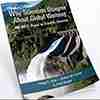Law
The Issue
In 1770, John Adams, one of colonial Massachusetts’ most influential lawyers and patriots, stood before a packed courthouse full of his friends, family, colleagues, and neighbors and ardently defended a group of British soldiers falsely accused of committing murder at what would forever be known as the Boston Massacre.
Amidst the cries of treason and calls for hanging, Adams declared to the crowd, “The law no passion can disturb. … It does not enjoin that which pleases a weak, frail man, but, without any regard to persons, commands that which is good and punishes evil in all, whether rich or poor, high or low.”
Adams’ brave defense of the principle of equality and fairness under the law led to a favorable and just ruling for his very unpopular clients, but its real impact would stand the test of time and forever be remembered as a hallmark of the ideal American system of justice.
Unfortunately, many local, state, and national government officials have moved away from this principle and have instead chosen to enact laws or apply existing law in a way that gives advantages to certain special interests and powerful people. Rather than enhance liberty, many of today’s laws are used as tools of tyranny and manipulation.
This problem has been made evident in recent years by so-called “patent trolls” – companies and individuals who stockpile patents for the sole purpose of suing legitimate businesses. Patent trolls rarely produce goods or services of their own, but they are very successful at getting defendants to settle out of court for large sums of money in order to avoid even-costlier court expenses.
When well-intentioned laws are taken advantage of to produce non-market-based profits, thereby punishing and disincentivizing legitimate businesses looking to see goods or services, innovation dissipates and consumers’ costs rise.
Another area where laws have frequently been abused is in tort law. Tort law exists to provide relief to individuals, groups, and businesses that have suffered from non-criminal damages unjustly caused by others. Tort law is important in a free society because it ensures people respect the property and lives of others, even when they don’t commit criminal acts.
While many have fairly used tort law to recover damages, a growing trend in tort law is for courts to award substantial – and in some cases unjustified – awards to plaintiffs seeking restitution. This problem was infamously put on display in Liebeck v. McDonald’s Restaurants, when a customer was initially awarded $2.86 million for damages caused by a self-inflicted coffee spill. Stella Liebeck, the 79-year-old plaintiff, successfully argued the coffee was unreasonably hot and that McDonald’s should be punished for its allegedly dangerous coffee.
Our Stance
In a nation that values personal liberty and freedom for all, laws must be unbiased, applied fairly, and must encourage people to act freely. Laws that favor one class of people over another, punish too severely, or unnecessarily restrict personal liberties should be abandoned or altered.
Featured Subtopics
Additional Subtopics
- Arbitration
- Constitutional Reform
- Criminal Justice
- Jury Reform
- Medical Malpractice
- Technology
Videos
- Property Rights in 21st-Century America
- The Use of State Power to Silence Patriots with Eric O'Keefe
Law Experts Team
The Heartland Institute's experts on law-related policy issues are available for legislative testimony, speaking engagements, and media interviews.
Related News & Opinion View All News
Related Publications View All Publications
Podcasts View All Podcasts
-
September 5, 2013

